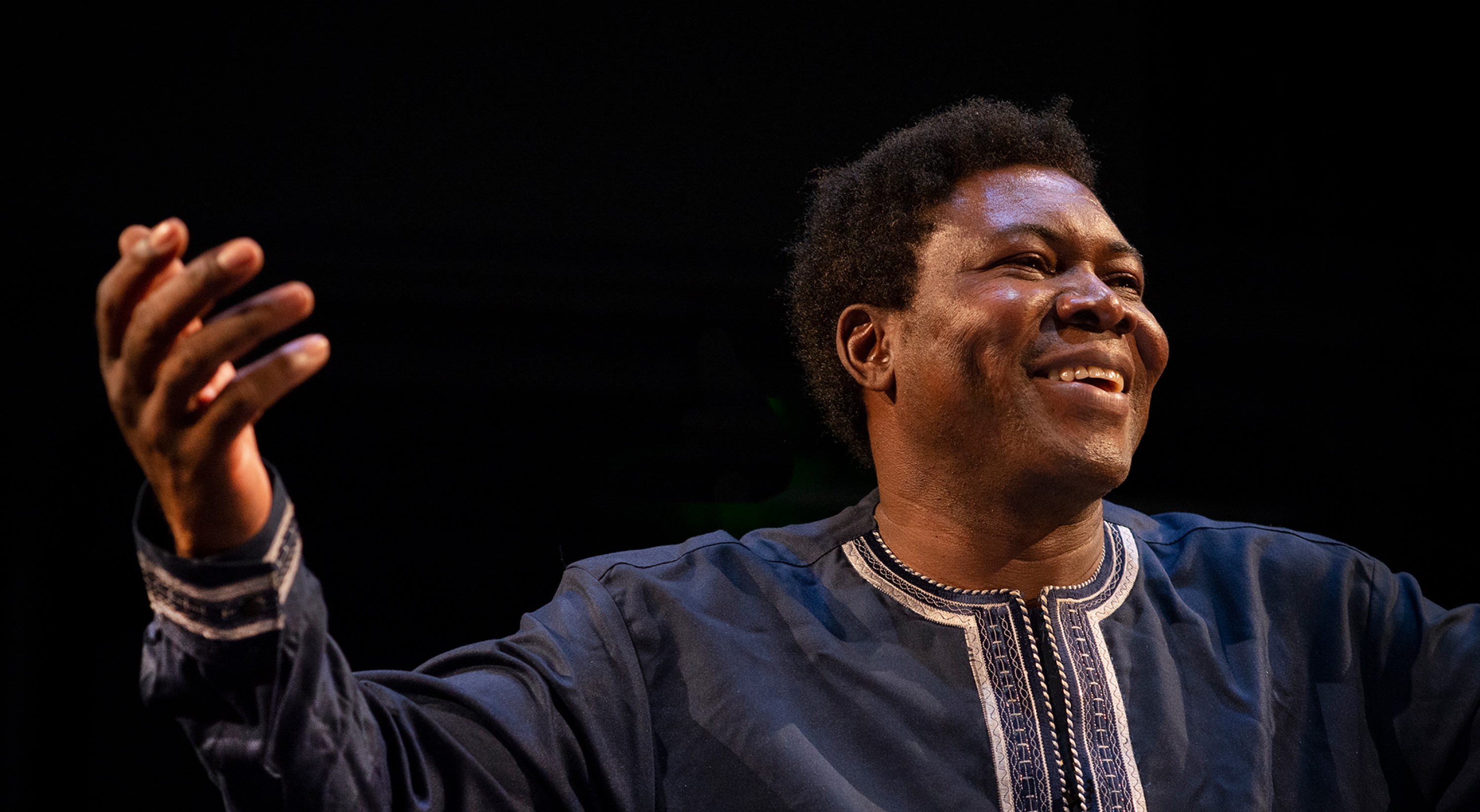Etienne Minoungou / Aristide Tarnagda
Traces – Discours aux Nations Africaines de Felwine Sarr
julyjuly 1 – 4
julyjuly 6
Traces – Discours aux Nations Africaines
Direction, Étienne Minoungou
External view, Aristide Tarnagda
Based on Traces – Discours aux Nations Africaines by Felwine Sarr
With Étienne Minoungou
Musician, Simon Winse
Video, Emmanuel Toe
Lighting, Rémy Brans
Distribution, La Charge du Rhinocéros
Produced by Théâtre de Namur
Coproduced by Les Récréâtrales (Ouagadougou) ; and AfriCologne Festival
In association with MC93 - Maison de la Culture de Seine-Saint-Denis (Bobigny) ; and Festival d’Automne à Paris
In Traces. Discours aux nations africaines by Felwine Sarr, the director of Les Récréâtrales festival in Burkina Faso, Aristide Tarnagda, brings to the stage a powerful piece of writing. It calls upon Africa to explore its past in order for it to regain its self-esteem and to be the vehicle for a new utopia.
A man addresses those around him in order to tell them of the beauty of Africa and its capacity to rise up again in the wake of slave trade and colonialism. And to shape its future. Traces. Discours aux nations africaines owes much to the essay Afrotopia, and its call for Africa to take its destiny into its own hands and to trace out its own path. The language used by Felwine Sarr is a surging, poetic one which calls upon Africa to lay the foundations for the dawn of a new day. The text is an invitation to sow the seeds of a better future, “to push humanity further, to drive back the horizon of the light, and to allow the white-waters to flow” in order to “extend the scope of what is possible and to draw the outline of an African utopia”, an active utopia.
“The mark or trace tells us to rehabilitate ourselves, and to break free from this flawed vision of ourselves. It tells us to come into being, to be born, completely”, writes Felwine Sarr. He appeals to the new generation of African men and women to delve deep into the past in search of the necessary matter for rebuilding self-esteem. And to re-establish links with the self in order to bring about a civilisation that is not just meaningful for Africa, but also for all of humanity. This text is the gesture made by an Africa getting back on its feet. In this staging by Aristide Tarnagda, the verb which Etienne Minoungou, a major figure in Burkina Faso theatre, holds out to the audience, is amplified by the kora and Peul flute playing of Simon Winse.
In the same place
